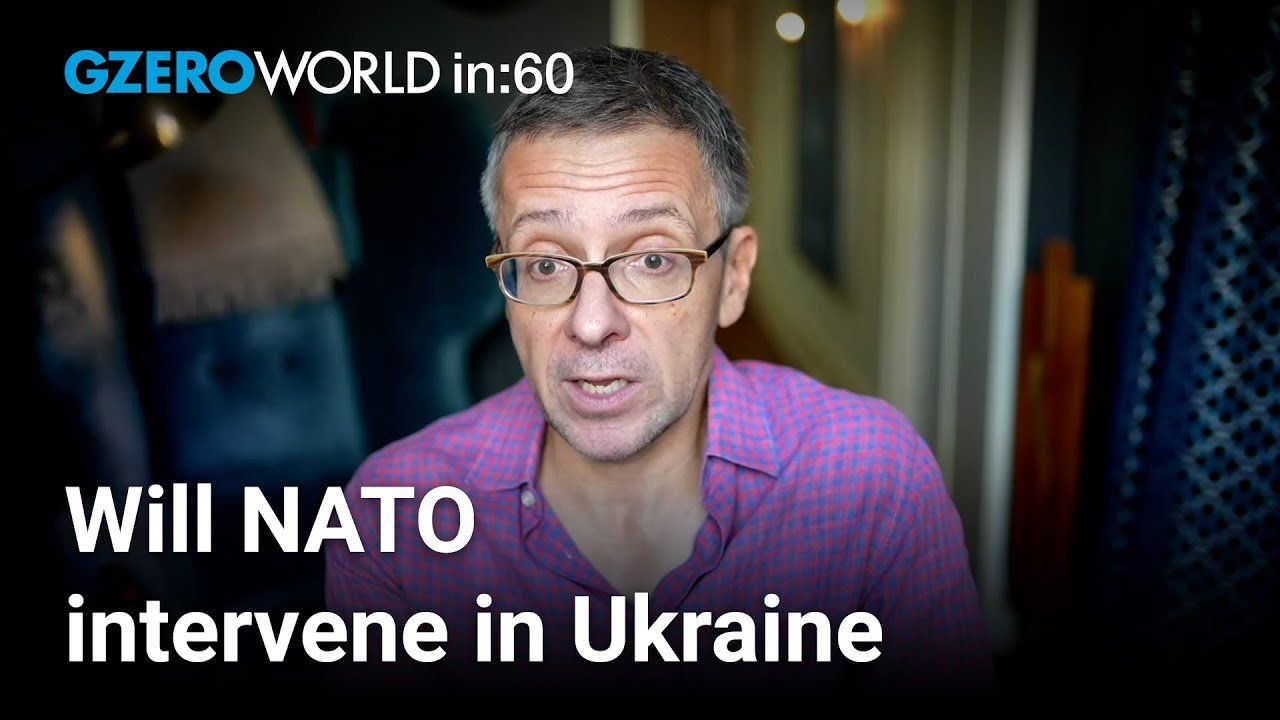Ian Bremmer shares his insights on global politics this week on World In :60.
With reports of North Korean troops in Kursk, what is the likelihood of NATO directly intervening in the Ukraine-Russia war?
I do think that North Korean troops fighting in the Russia-Ukraine war is a major escalation, will lead to tougher sanctions, will lead to greater likelihood the Americans decide to allow for Western missiles to be used to target targets inside Russia. But the ultimatum that's been given is that if Russia deploys North Korean troops inside Ukraine itself, then NATO will respond with combat troops in Ukraine. That is a major escalation in this war. It is meant for the Russians to take it very seriously. I hope that Putin accordingly decides to keep those North Korean troops in Russia itself. And I know that the Chinese also are very concerned about where this is going. So, we'll watch this very closely.
Moldova's pro-Western President secured a second term after narrow runoff win. Does her victory reflect Western strength against Putin?
I'm not so sure. I mean, first of all, of course, lots of efforts by the Russians themselves to interfere monetarily, disinformation in this election, the way they did successfully in Georgia. In the case of Moldova, you have an awful lot of Moldovans voting that were outside Moldova legally, but that's what turned this race. It wasn't the people on the ground. And it was, as mentioned in the question, very tight indeed. This helps them stay on track with the European Union membership. But there's a very large Russian population in breakaway Transnistria with Russian troops on the ground. And I suspect that Putin and the Kremlin has no interest in giving up on this. So, it's going to keep going in the coming years.
How is the political rift between Bolivia's government and the former President Evo Morales affecting the country's stability and economy?
Well, Bolivia, extremely mountainous, very easy to shut down the economy. Just roadblocks in some of the mountain roads that are hard to move along and that means that you can't get goods through and massive inflation. And that's what's happening right now. And he, though he's from the same party as the president, believes that he's being mistreated. They're going after him for all style of corruption. Does appear to be legitimate charges, but he has leverage with a lot of Bolivians that are turning out in his favor. So I suspect if they don't come to some kind of compromise, this is going to hurt the economy there quite a bit. Not the only place we have instability in the world. And then we'll see what happens in the US later today. Be good and I'll talk to you all real soon.
More For You
For many in Iran, it’s a waiting game for how long Ayatollah Khamenei has left to live.
Most Popular
In a 30-minute call on Thursday, President Donald Trump reportedly told Ukrainian President Volodymyr Zelensky he wants to end the war with Russia as soon as possible — aiming for a deal by summer, but ideally within weeks.
Former British ambassador to the U.S. Peter Mandelson leaves his residence after he was released following his arrest by London police on Monday on suspicion of misconduct in public office, following the release of U.S. Justice Department files linked to the late financier and convicted sex offender Jeffrey Epstein, in London, Britain, February 26, 2026.
The ghost of Jeffrey Epstein continues to haunt the world.
Think you know what's going on around the world? Here's your chance to prove it.
